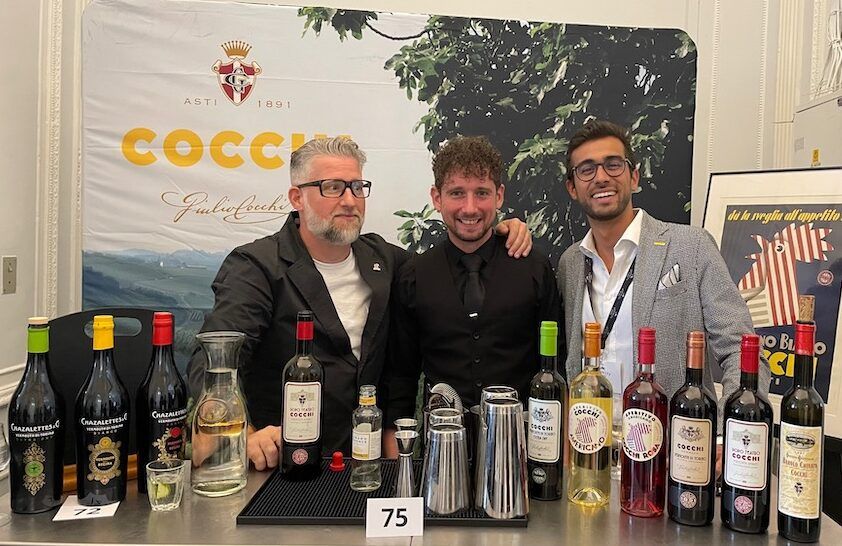“We’re seeing a trend across all categories towards lighter styles that can be used to make long drinks and aperitivos with lower abvs,” says Chris Seale, Speciality Brands’ managing director.
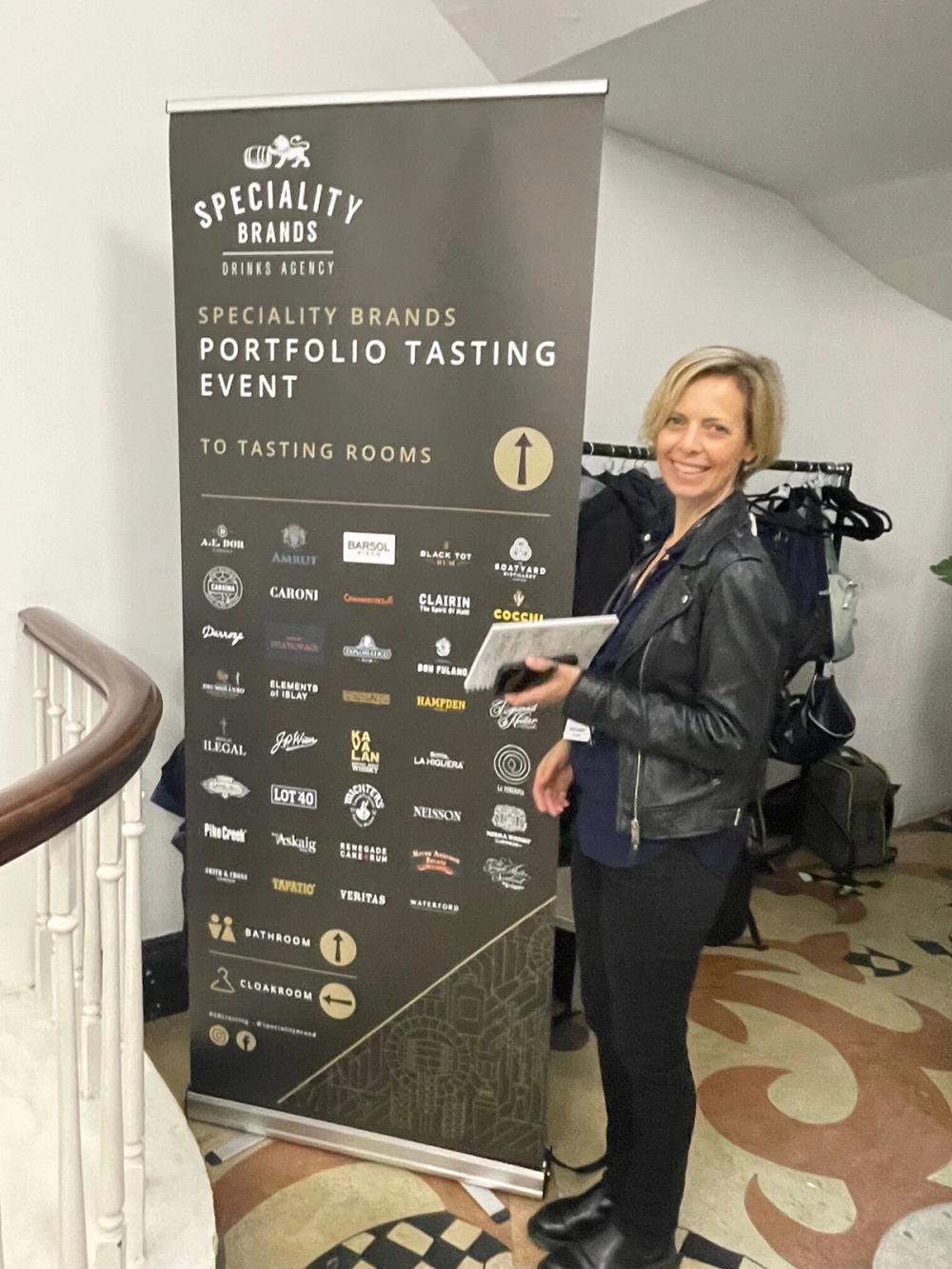
“An energetic and enthusiastic vibe,” Speciality Brands tasting, ICA London, September 13, 2022
“The year is turning out to be one of two distinctively different halves,” says Chris Seale, Speciality Brands’ CEO somewhat ruefully as I snatch him for a chat at their portfolio tasting last week.
“The first half was very buoyant as we came out of lockdown, with the market full of excitement and confidence for a great summer,” he went on. “Then dark clouds in the shape of looming inflation, the threat of recession, the war in Ukraine, rising energy prices and government instability began gathering, making the environment feel very unstable.”
There was certainly an energetic and enthusiastic vibe among the crowd at the tasting, held in the the lofty rooms above the Institute of Contemporary Arts overlooking the Mall where, just 24 hours later, the Queen’s coffin made one its many journeys en route to the royal resting place.
“Confidence of both the on- and off-trade has been dented, but there’s no doubt that post-Covid consumers are becoming more willing to research and experiment, and to look for quality brands with genuine provenance.”
“Rum continues to do well, especially at the premium level,” Seale goes on. “Agave spirits are stronger than ever, and we’re seeing a trend across all categories towards lighter styles that can be used to make long drinks and aperitivos with lower abvs.”
On that note, I decided my tactic was to start at the lowest abvs and work up from there to the more onerous firewaters. I began at the Aromatised Wines stand, featuring the excellent (and under-rated) Chazalettes French vermouths but dominated by Cocchi, the smart Italian brand whose immaculate range was joined by an Extra Dry Vermouth last November.
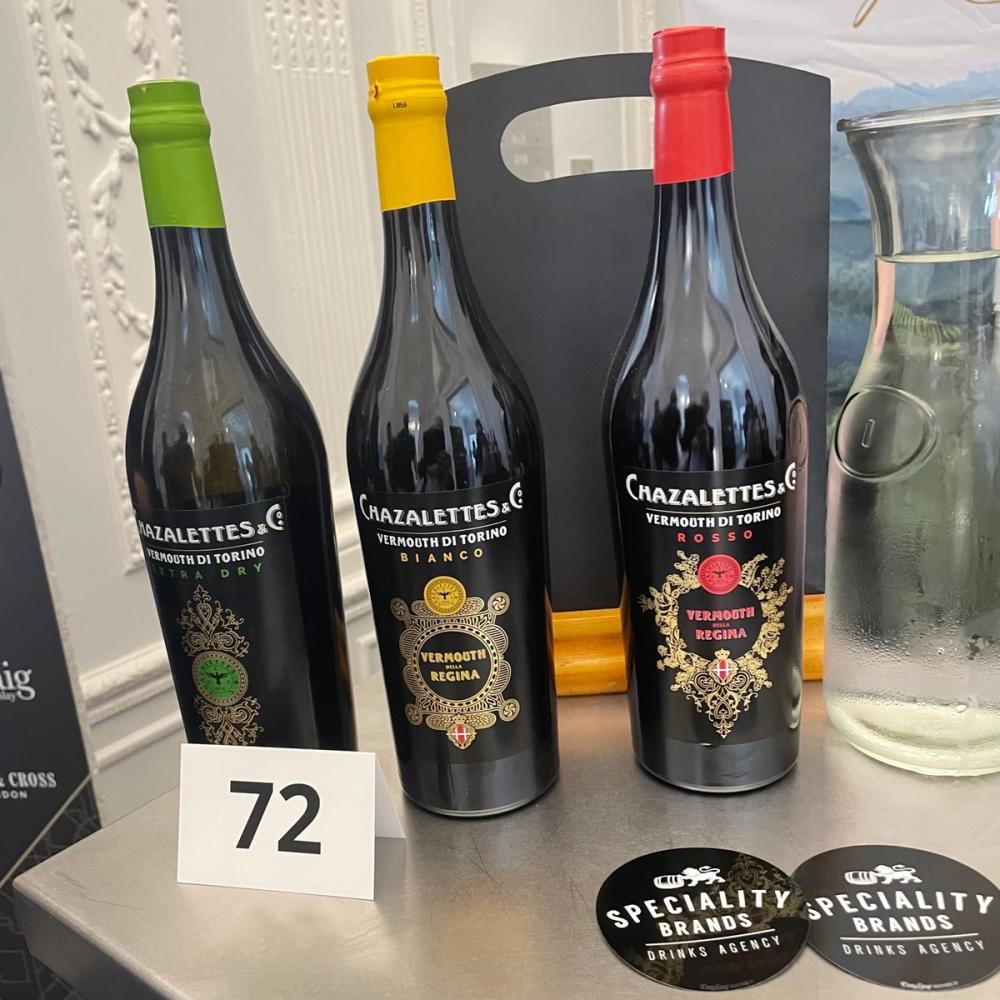
Jon Lister, Speciality Brands’ head of mixology, was ebullient about the strength of this category. “The growth of e-commerce since Covid, and the rise of cocktail-making at home, has made consumers more adventurous, and more confident to use their own favourite brands in easy, reliable drinks like negronis and manhattans.”
With an eye on the time, and a pretty comprehensive working knowledge of the rest of the bottles on show, I tasted the Extra Drys from both companies side by side. It was a good demonstration of the general style differences between French and Italian vermouths, the Chazalettes being savoury and herbaceous to Cocchi’s swashbuckling exotic spice and malic texture underpinned with sage-leaf astringency.
“They both have lots to say for themselves, rather than just playing second fiddle in cocktails or long drinks,” says Lister. “I like them in really simple 2:1 (gin:vermouth) martinis, stirred or on the rocks, with no garnish.” Wise words from a wise man.
Two brands down, 14 to go, so I set off for the rest of this demanding but really enjoyable tasting, taking in a pisco/mezcal masterclass along the way. Speciality Brands keep a tight stable of 18 reliable, quality brands that show some of the best in class in their categories.
Here are my top 10 picks from the tasting:
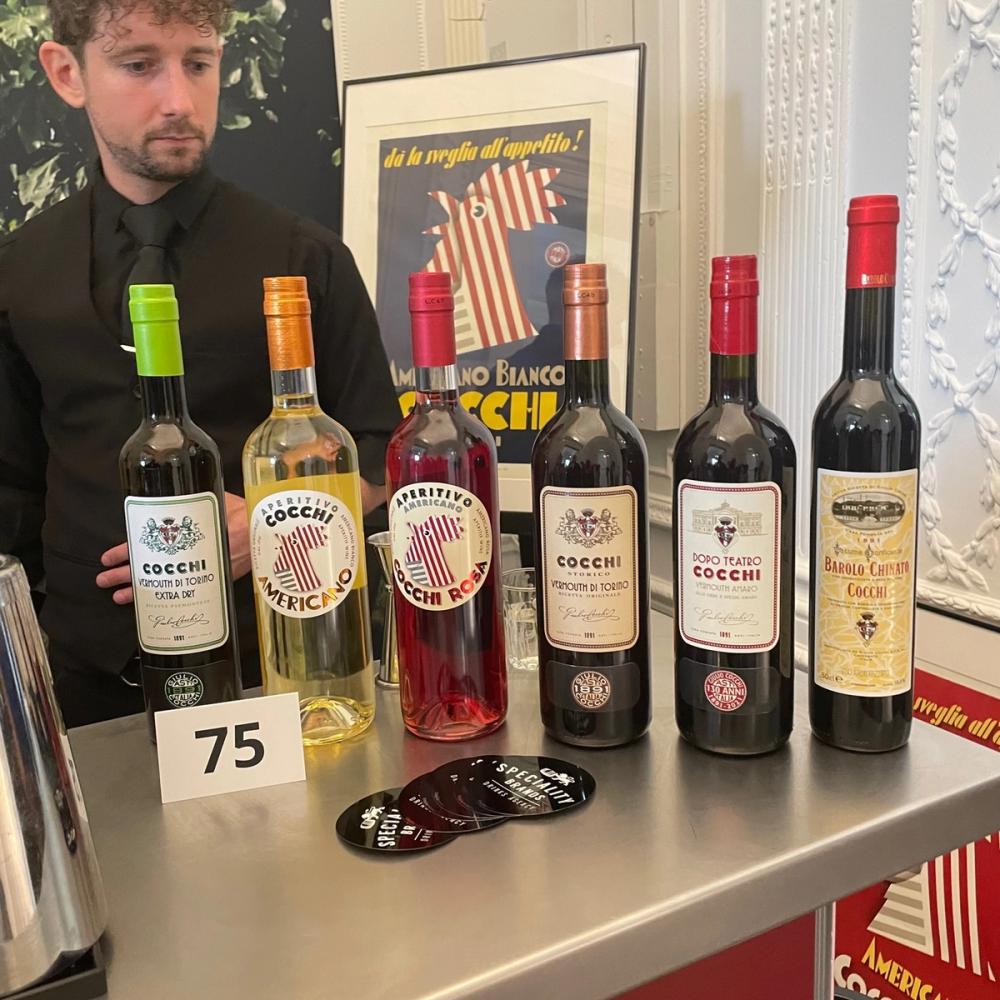
Cocchi Barolo Chinato
Cocchi has been producing aromatised wines continuously since 1891. It’s hard to pick a favourite from their stable but I keep coming back to this. A chinato (meaning its principle bittering botanical is cinchona, from which quinine is extracted, as opposed to vermouth’s defining wormwood) made with a base of Barolo DOGC wine along with other botanicals including rhubarb, gentian and cardamom, its sweetness is balanced with intense bitterness. A very seductive digestif that works brilliantly with a cheeseboard and/or dark chocolate puddings. 16.5% RRP £39.40
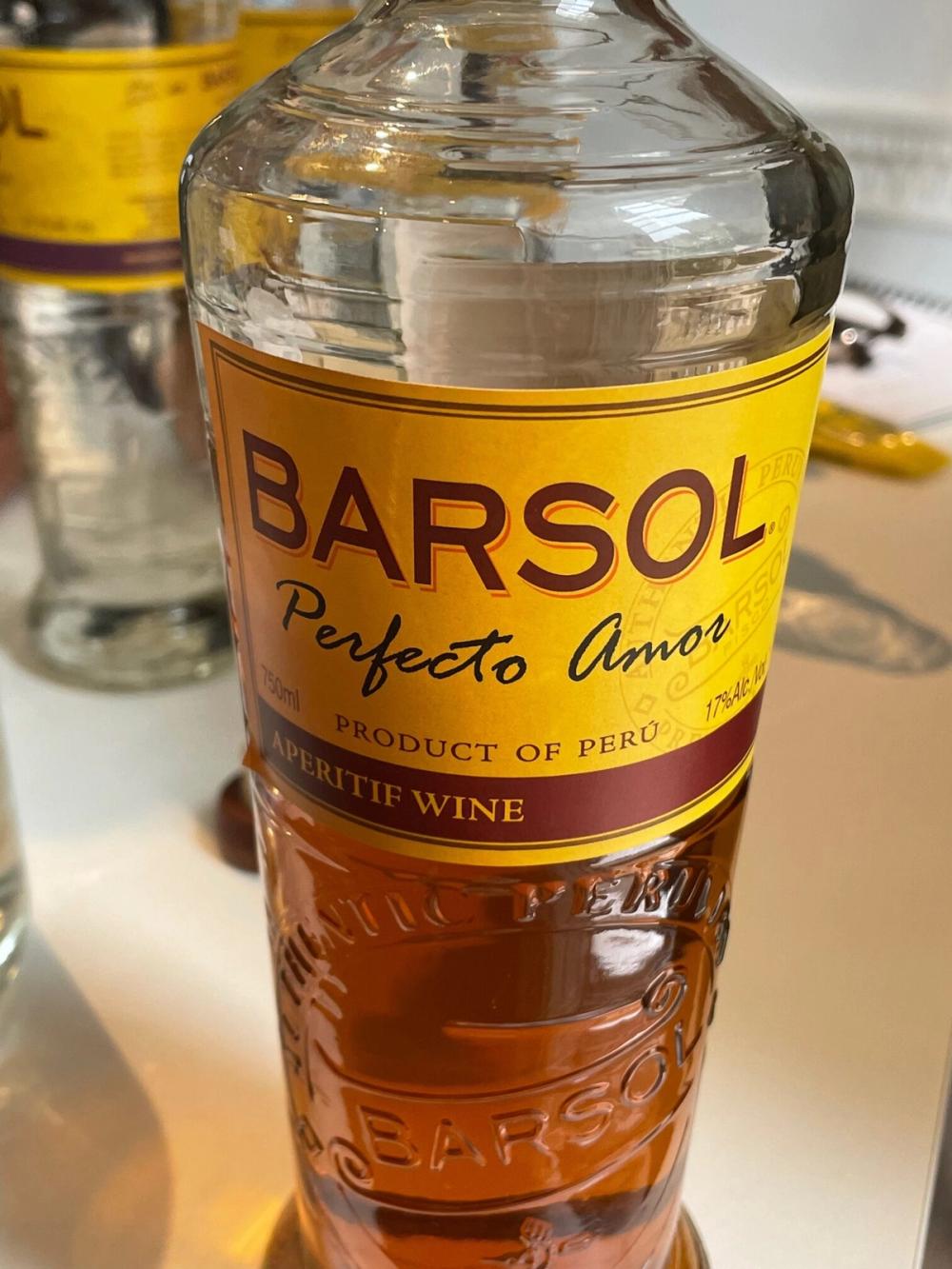
BarSol Perfecto Amor Vino Aperitivo
BarSol makes some of Peru’s best pisco, the grape-based spirit made since then 16th century, given a boost when Phillip IV of Spain banned the importation of Spanish wine into Peru, so makers swiftly turned to distilling theirs into pisco instead.
BarSol uses natural fermentation and traditional pot stills to make its single-distilled, single-varietal piscos, all with a distinctly wine-like quality but with different nuances depending on which grapes are used and which methods are employed – puros, made from fully-fermented must, mosto verdes from partially fermented must, and an achollado, a blend of 3 puros. Floral, zesty and grassy on the the nose that, for me, is more attractive than the grunting notes of tequila and mezcal, their long palates reveal a whole gamut of flavours including spice, citrus, nuts, honeysuckle, passionfruit and pastry.
All lovely in their own ways but the Perfecto Amor stole my aperitif-loving heart. A 50:50 mix of pisco and unfermented grape juice, much in the way that pineau des Charentes, floc and ratafia are made.
Gorgeous warm apricot, quince, almond, honey and caramel notes given a bracing sharpness by the fortifying pisco. Lovely chilled in a small glass, perhaps with a little cheese either before or after dinner, it also makes a great on-the-rocks cocktail called a White Captain with a little added pisco, a dash of bitter and an orange twist. 17% RRP £21.50
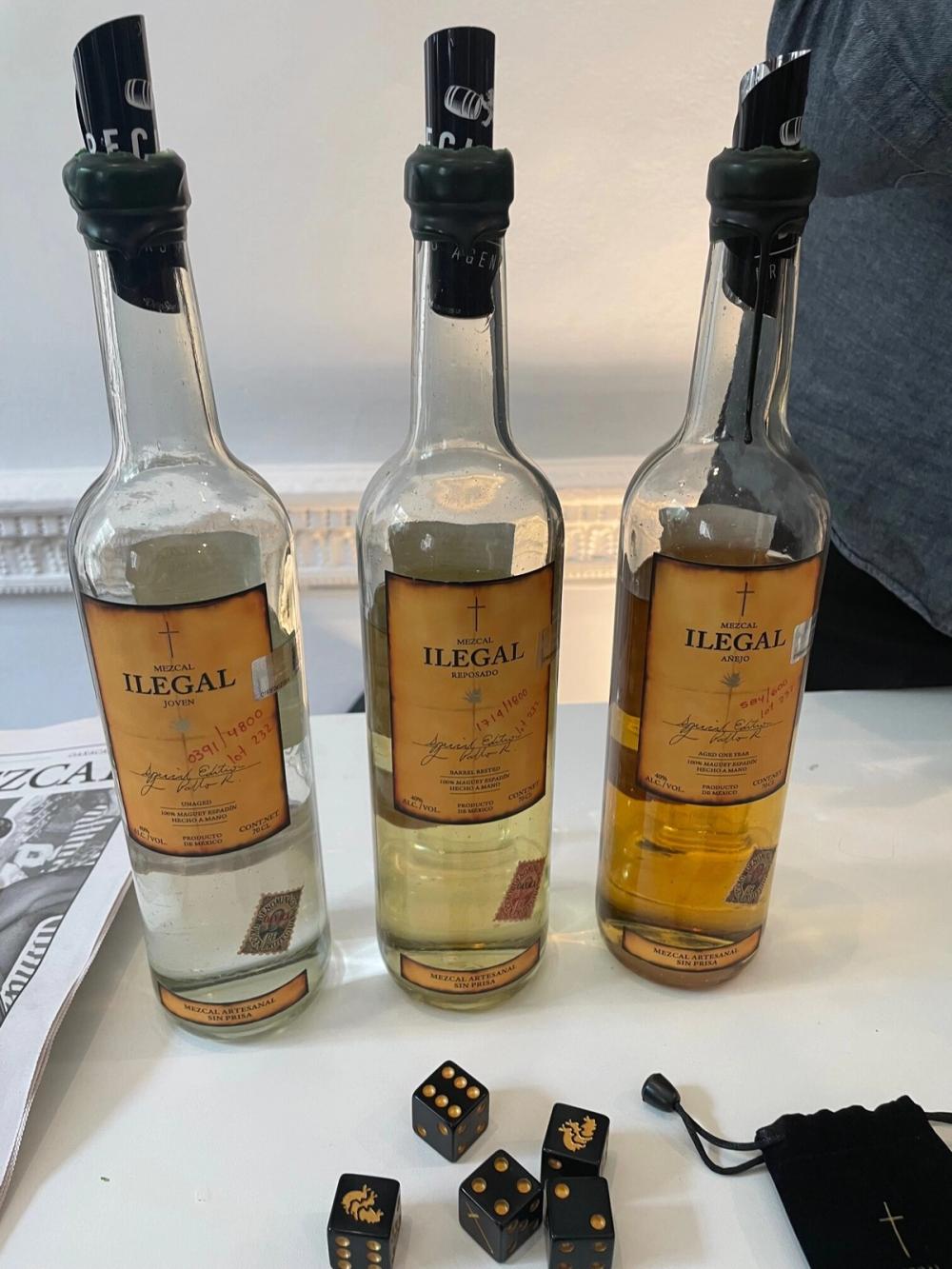
Ilegal Joven Mezcal
It’s generally assumed that distilling techniques were brought to South America by European missionaries and conquistadores, but recent archeological evidence suggests that clay stills, remarkably similar to those still in use by some artisanal makers, were used in this region as long ago as 1500BC.
Ilegal is of more recent origin, set up in 2006 by John Rexer who’d been buying unbranded mezcal from Mexico to supply his bar in Antigua. Hand-crafted Artisanal mezcals (meaning the agave is hand-harvested, cooked in traditional underground ovens, fermented in open-topped vats and distilled in wood-fired copper or clay stills). Ilegal is now the second largest producer of artisinal mezcals in the world after Del Maguey; it also has won several prizes for its guerrilla marketing and charity campaign featuring a profile of Trump and the words ‘Donald Eres Un Pendejo’, launched in 2016 as a protest against Trump’s rhetoric on Mexico and its people.
This classic Joven is clean and fresh with some floral and herbaceous notes to temper mezcal’s characteristic smokiness. I’d be tempted to use it in place of gin to make an assertive, autumnal negroni. 40% RRP £50.00
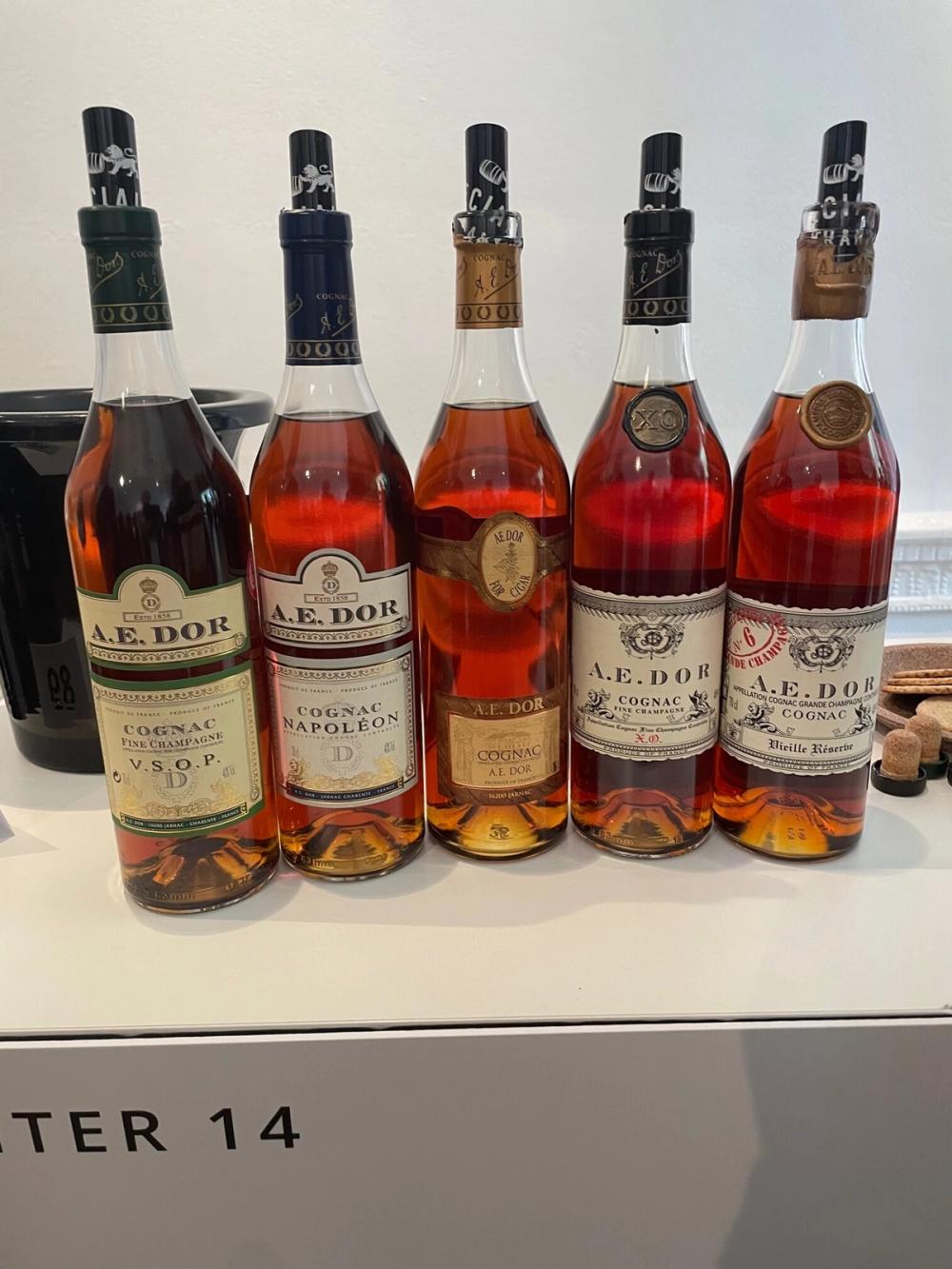
A.E. Dor No. 6 Cognac
Even Cognac, whose image has hovered at the fusty, ruddy cheeked, gentlemen’s club end of the spirit spectrum for decades, is seeing a post-Covid upsurge in interest, and a growing appeal among younger drinkers.
A.E Dor has been in business since 1858 and makes a speciality of ageing its cognacs in casks and demi-johns in both dry and humid cellars to give a variety of styles. Those made approachable with a little natural sweetness and richness are doing particularly well, drunk alone or mixed into cocktails, and there is a move away from cognac being very much a seasonal, wintery drink to be something enjoyed all year round.
Five bottles were on show, including their perky, peppery VSOP (RRP £54.00), ‘Cigar’, a muscular blend of different crus designed to complement cigar aromatics (£110.00) and (my favourite) No. 6, a 50-year-old, single-growth Grand Champagne cognac aged slowly in a humid cellar. Delicate but with wondrous layers of toasted teacakes, raisins, butterscotch and apricot jam. 40% RRP £225.00
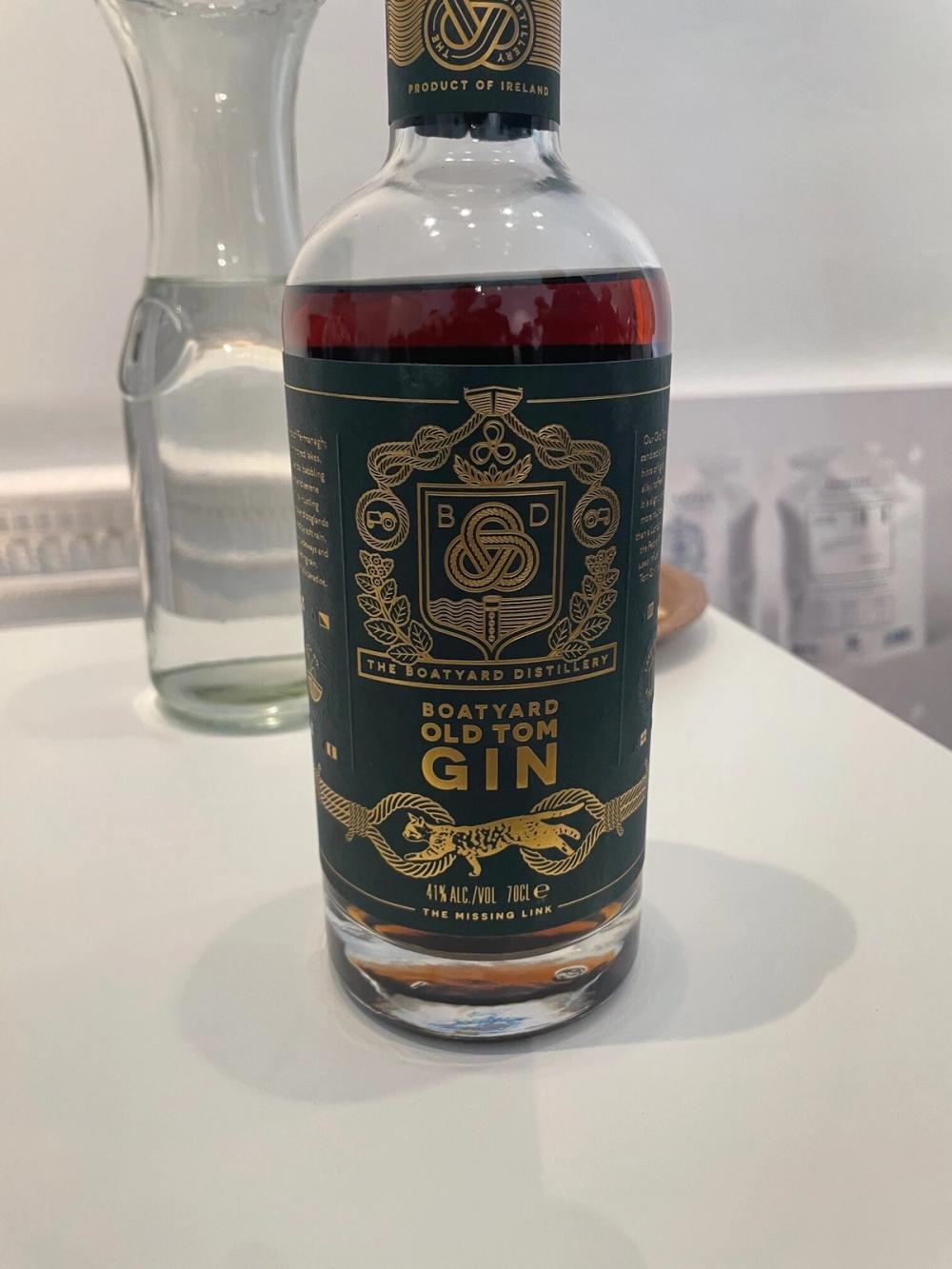
Boatyard Old Tom Gin
Behold! An Irish distillery with no plans to release any whisk(e)y. Boatyard opened in 2016, Co. Fermanagh’s first (legal) distillery since 1890, on the site of a disused boatyard on the banks of Lough Erne. Its founder, Joe McGirr, has previous in the industry, having worked for Glenmorangie for ten years before moving back to his roots here.
Four gins and a vodka comprise the Boatyard range, all made from locally grown, organic grains which can be traced to the farmers who grew them. The gins incorporate botanicals grown on the family farm by Joe’s brother Brian, and are double-distilled and heavy on the juniper.
This Old Tom, a sweeter style than the more usual London Dry and similar, is something of a revelation. The gin is rested in first-fill pedro ximenez sherry casks and takes on a gentle coppery colour as well as a little wooody, spicy richness, then a little PX is added to bring the required sweetness and a lovely luscious texture. This would be great in a negroni, or just to sip by itself over a little ice.
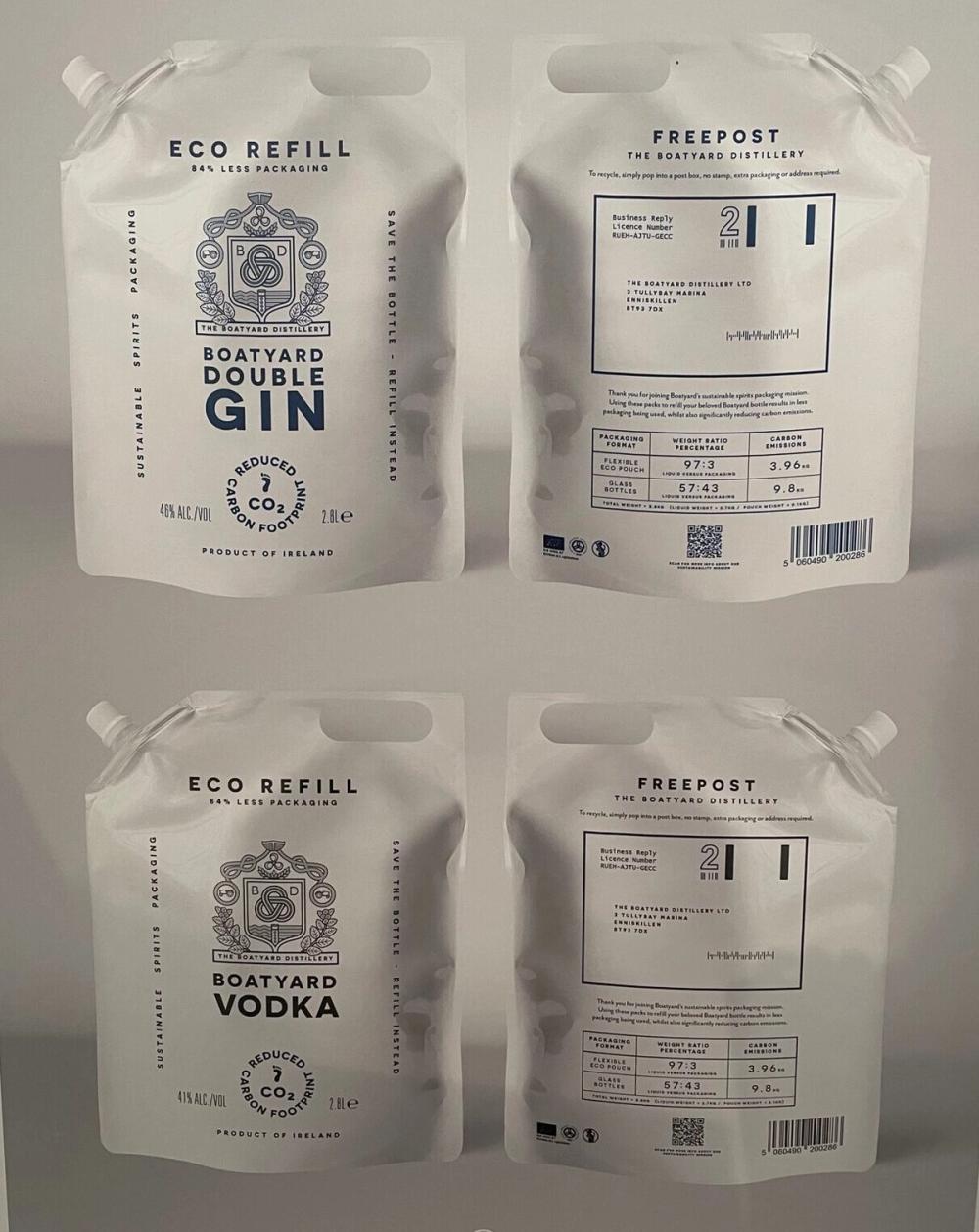
Boatyard’s impressive commitment to sustainability issues includes the genius and eco-friendly option to buy the range in reusable 2.8l pouches which can be used to refill their recycled glass bottles. A gift to the on-trade as it gives savings of around 25% on the price of bottle, it also slashes the carbon footprint of transporting the heavy glass. Other producers please take note; if this were adopted widely across the industry, really meaningful carbon savings could be made. 41% RRP £36.75
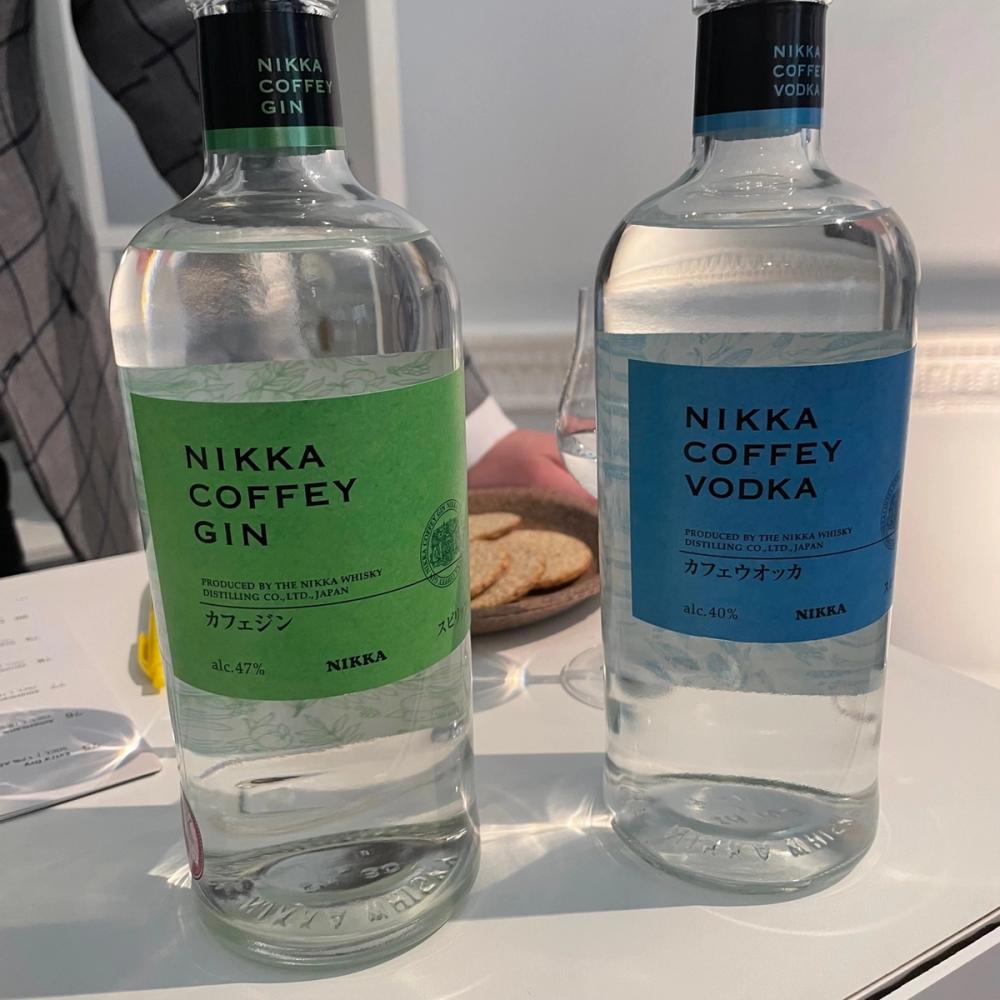
Nikka Coffey Gin
Nikka’s whiskies need no introduction, of course, and there were seven iterations of these shown at the tasting, but my eye was drawn by this. A gin launched in 2017 along with a vodka, both made from malted barley and corn using the original Coffey stills imported from Scotland by Masataka Taketsuru, the founder of the company, in the 1960s.
My tolerance for ‘new’ gins has been sorely tested over recent years, with so many bottles jostling onto the shelves of an already overcrowded market. Some are good, some are really good, but so many are mediocre at best, and none has yet replaced Beefeater at the top of my affections. This, however, certainly turned my head. Initially redolent of Ovaltine (in a good way) with its malty, chocolatey nose and creamy texture, Japanese citrus including yuzu and amanatsu then jump out along with juniper, fennel, coriander and peppery botanicals.
I’d be tempted to use this in a fairly wet martini made with Cocchi’s Americano or an off-dry white vermouth. 47% £46.80
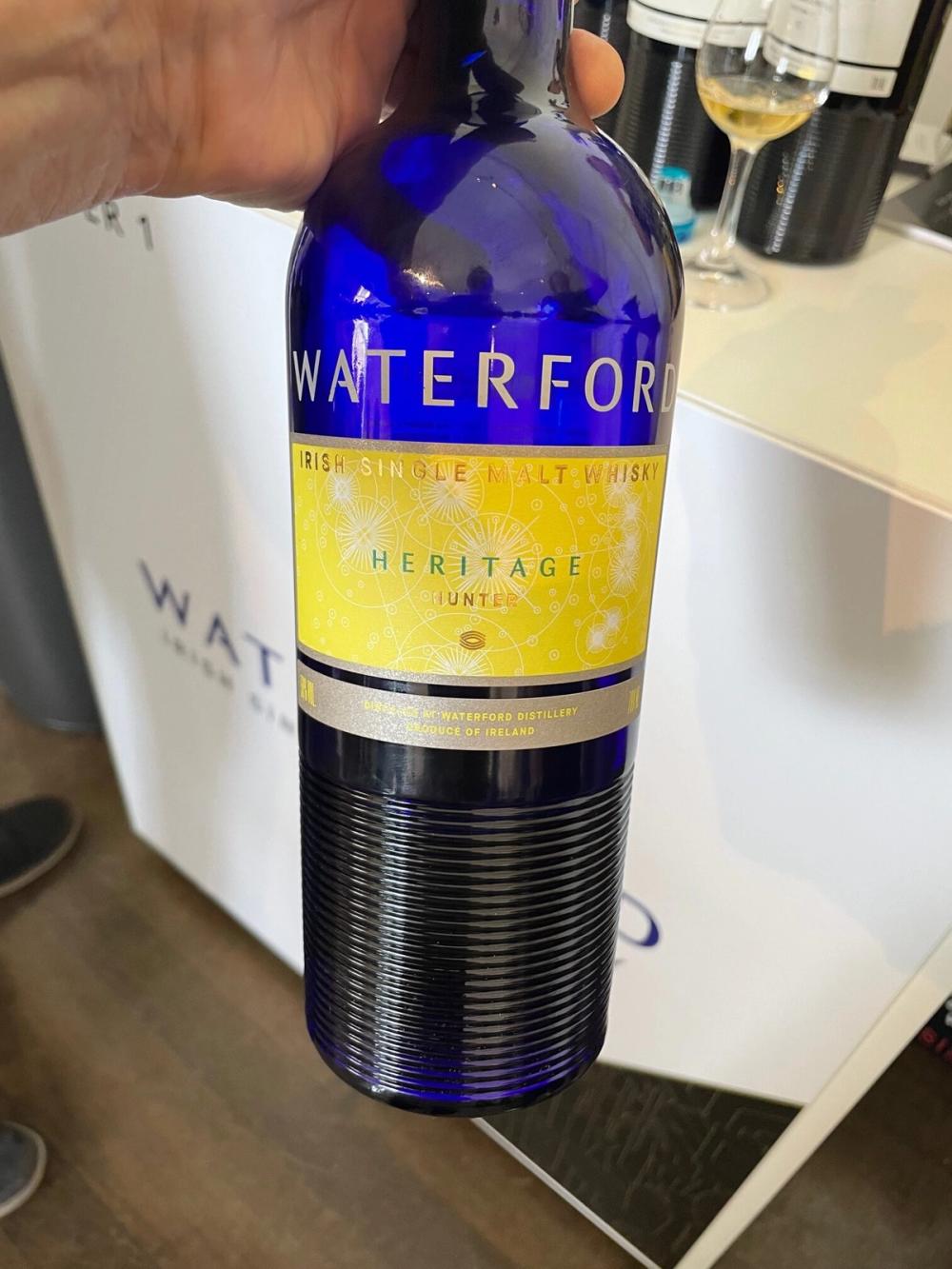
Waterford Heritage Hunter Whisky
The brainchild of Mark Reynier, former CEO of Bruichladdich, the Waterford Distillery was established in 2015 in an old Guinness brewery in Waterford City and released its first bottles in 2020. The on-trend emphasis is on double-distilled, terroir-driven whiskies, often of single-farm origin from organic and/or biodynamic barley growers.
This is their latest release, made from a revived heritage variety of barely called Hunter, flavoursome but low-yielding and thus not preciously grown for over 60 years. Aged for 38 months in a mix of used casks, it has a delicate, lifted elegance with floral, straw-like aromas and a gentle creamy texture. One to sip slowly; at the risk of raising the ire of traditional whisky aficionados, I’d like to drink this slightly chilled.
As for why this Irish brand, based in the city of Waterford, has no ‘e’ in the spelling of its whisky, I refer interested readers to this explanation on its website. 50% RRP £95.00 (Released mid-October).
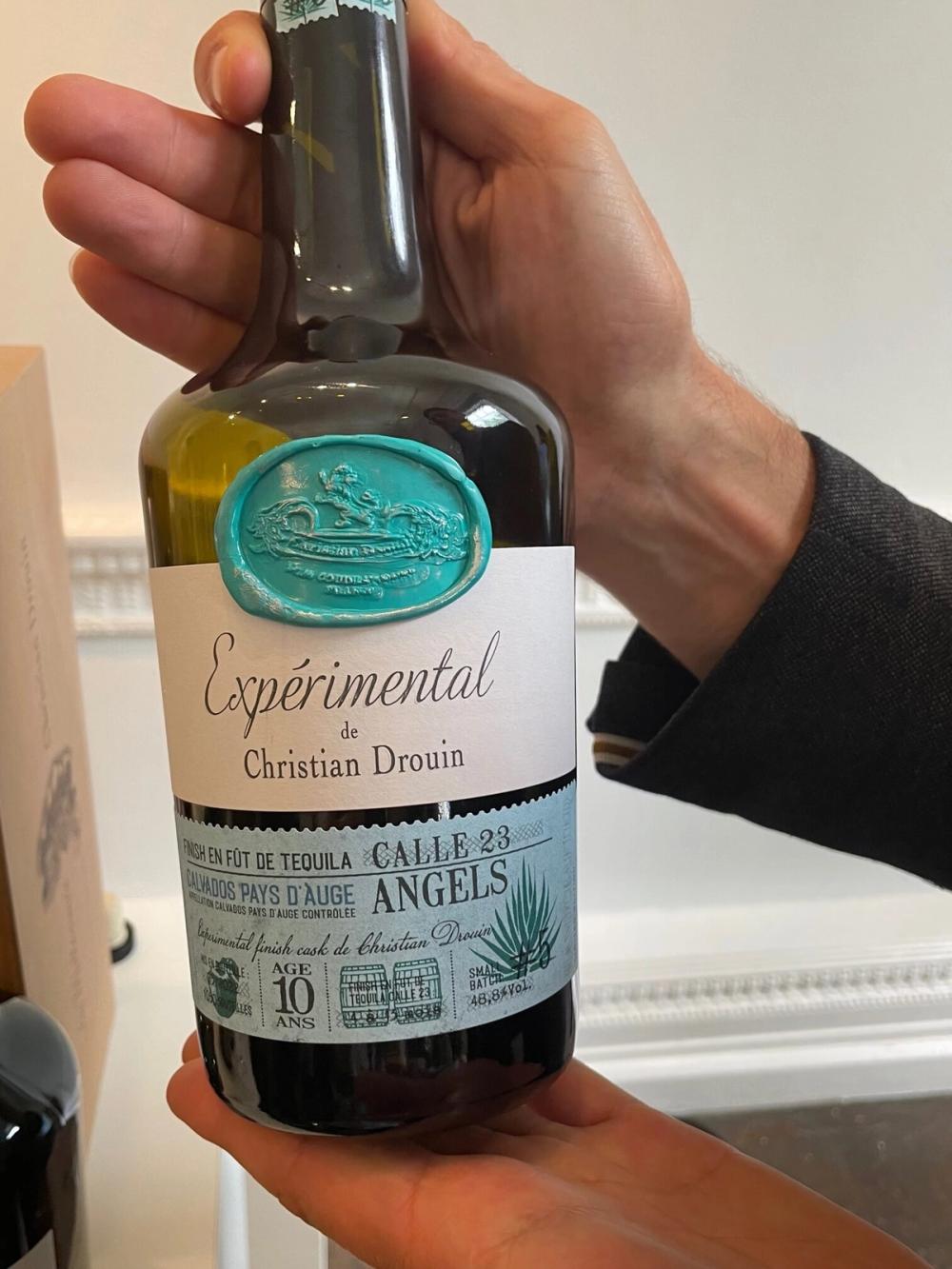
Expérimental de Christian Drouin Calle 23 Calvados
A relative newcomer to the Speciality Brands’ portfolio, Maison Christian Drouin showed 7 fine Calvadoses, all made from 35 varieties of native Normandy cider apples fermented slowly with natural yeasts, ranging from the bright, fruity La Blanche (good value at £34.40 RRP) to the dark and serious Les Millésimes 1982 vintage at a heart-fluttering £270.00. 48.8% RRP £95.00
This is a limited edition of 1050 bottles, the latest release of their Expérimental series of collaborations with other distilleries who provide casks for finishing the calvados. Previous partners have included Hine, Hampden and Long Pond rum; this is from craft tequila maker Calle 23.
There is a definite whisper of tequila, an almost truffle-like earthiness, then it opens up with orchard fruits, toasted nuts, some gentle spice and a chocolatey sweetness.
PS: As discussed at the table, an espresso martini with calvados in place of the vodka sounds like a very good thing indeed; a new take on the classic café calva drunk by every self-respecting Norman.
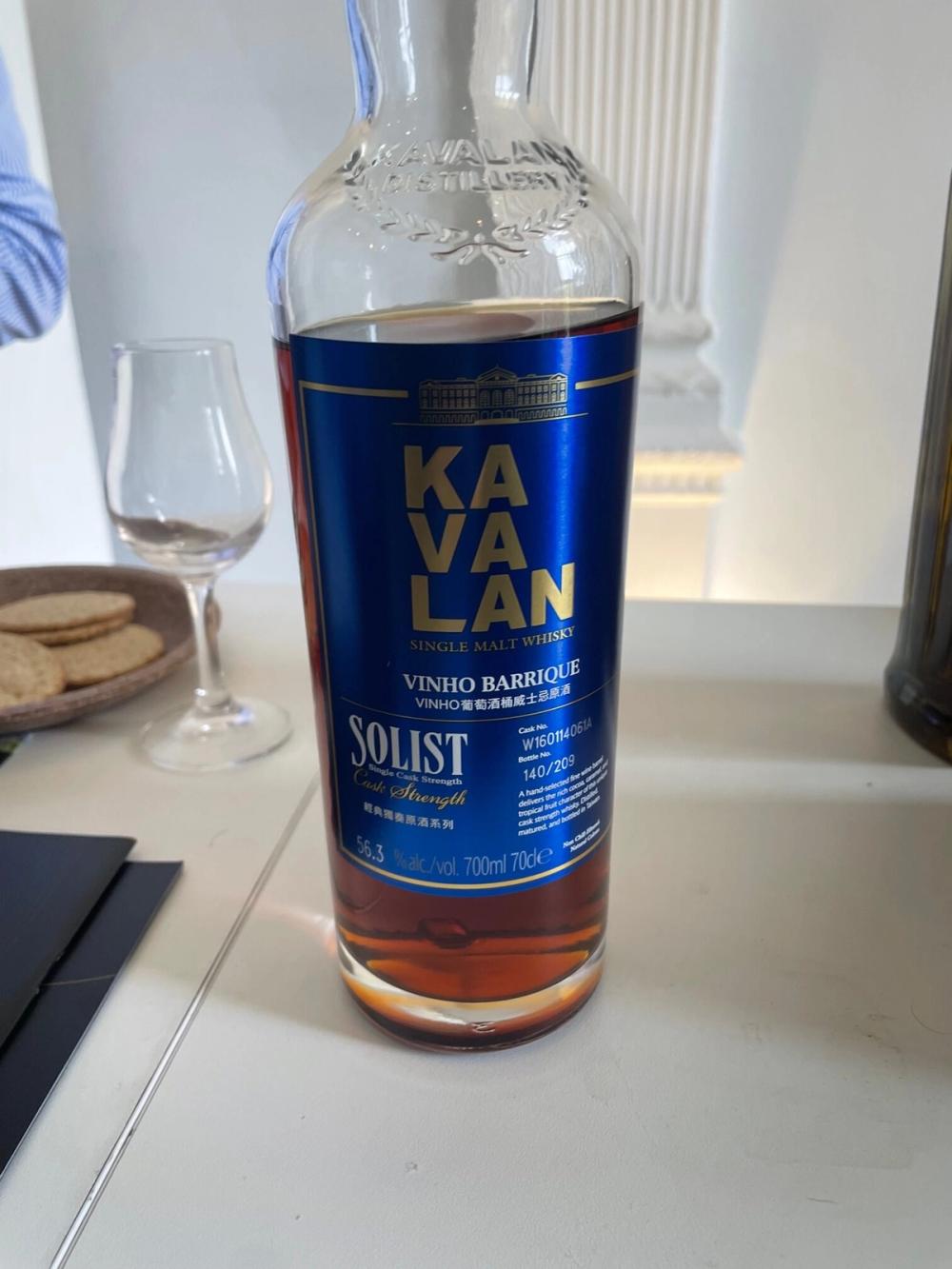
Kavalan Solist Vinho Barrique
Established only in 2005, Kavalan is Taiwan’s first and oldest privately owned distillery, now producing a record-breaking 9m litres of single-malt whisky each year and enjoys global success.
The high temperatures and humidity of the climate speeds up the traditional Scottish ageing process and lend tropical, fruity notes to its liquids.
This is the top of its impressive range, distilled in 2016 and aged in American oak previously used for both red and white wines, then bottled in 2021. With notes of dried pineapple, vanilla, chocolate, orange zest and plenty more besides, this was declared the World’s Best Single Malt in the 2015 World Whiskies Awards, and who am I to argue? 58.6% RRP £213.00
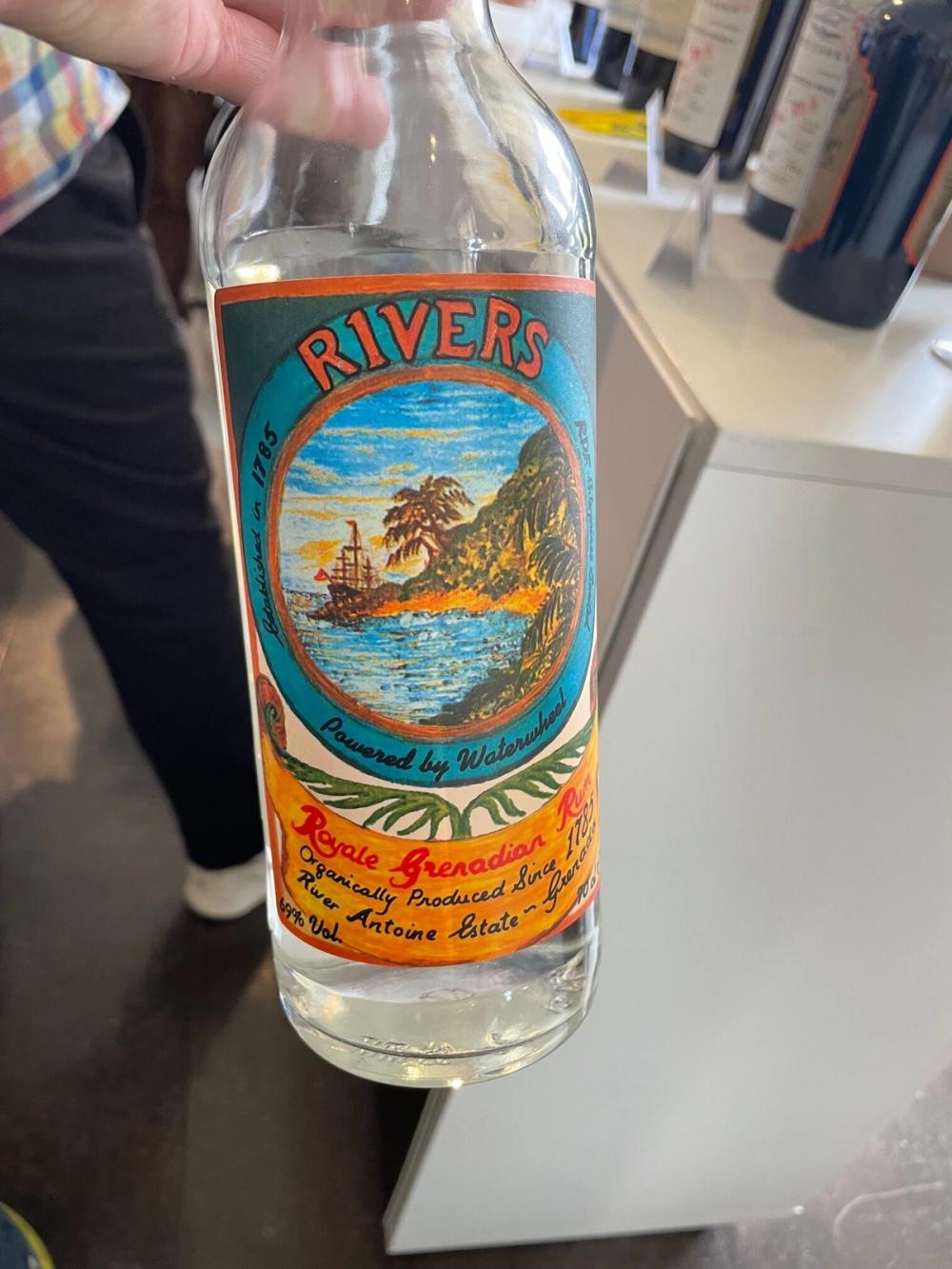
Rivers Royale Grenadian Rum
Established in 1785, the Rivers Antoine Estate is the oldest distillery on the island of Grenada and the techniques used to make this rum agricole (made from sugar cane rather than molasses) has remained pretty much unchanged since then. The original waterwheel is used to power the cane mill, then the juice is spontaneously fermented and distilled in double-retort pot stills heated over open fires burning bagasse, the dried fibres of the sugarcane left over from the milling process.
Until recently, almost all of this rum was sold only on the island to locals and visitors; export was only started when Covid stopped the tourist industry in its tracks. It’s a rollercoaster of a drink – a pungent, funky nose full of earthy, almost meaty notes that opens to reveal a sweet fruitiness. On the palate, its 65% abv is tempered by a pleasing oiliness and subtle waves of candied fruit, astringent herbs and a surprising, almost saline freshness. 69% RRP £85.00
In an admirable piece of CSR, Speciality Brands donates 10p from every bottle sold to the Only A Pavement Away charity which connects homeless and other vulnerable people to careers in the hospitality industry.
Speciality Brands is a supplier partner of The Buyer. To discover more about them click here.
